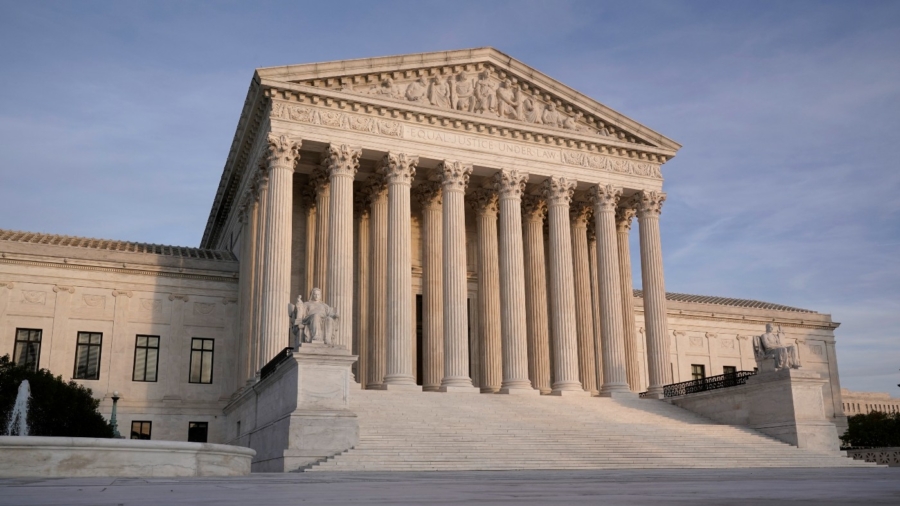The U.S. Supreme Court on Thursday blocked the Centers for Disease Control and Prevention’s eviction moratorium, thereby opening the door for property owners to evict residents behind on rent amid the CCP virus pandemic.
The ruling comes after the CDC on Aug. 3 issued a federal moratorium for 60 days, expiring on Oct. 3.
According to Census Bureau data from early August, about 3.5 million people in the country said they faced eviction in the next two months.
The CDC’s policy was challenged by a coalition of landlords and real estate groups in Alabama and Georgia. They argued that the CDC did not have the authority to implement the moratorium.
In an unsigned opinion (pdf) on Thursday, the court’s majority said that the CDC lacked the authority to issue the moratorium without authorization from Congress.
The court rejected arguments from the Biden administration supporting the CDC’s authority. The administration also argued that the rise in the delta variant of the CCP virus justified holding back evictions in areas where transmission of COVID-19, the disease caused by the CCP (Chinese Communist Party) virus, was high.
“It would be one thing if Congress had specifically authorized the action that the CDC has taken. But that has not happened,” the court wrote. “Instead, the CDC has imposed a nationwide moratorium on evictions in reliance on a decades-old statute that authorizes it to implement measures like fumigation and pest extermination. It strains credulity to believe that this statute grants the CDC the sweeping authority that it asserts.”
The court concluded that “If a federally imposed eviction moratorium is to continue, Congress must specifically authorize it.”
The three liberal leaning justices—Stephen Breyer, Sonia Sotomayor and Elena Kagan—dissented, with Breyer, writing for the three, saying that the court should not reject the eviction ban “without full briefing or argument.”
“Applicants raise contested legal questions about an important federal statute on which the lower courts are split and on which this court has never actually spoken,” Breyer wrote. “These questions call for considered decision making, informed by full briefing and argument. Their answers impact the health of millions.”
Breyer also argued that the court should have upheld the moratorium, writing, “The public interest strongly favors respecting the CDC’s judgment at this moment, when over 90% of counties are experiencing high transmission rates.”
The CDC had ordered a nationwide eviction moratorium in September 2020 in an effort to prevent the spread of the CCP virus—the idea being that evicted people would be likely to move in with relatives or friends or crowded homeless shelters and potentially undermine social distancing restrictions.
The moratorium was extended for another 30 days in June and officials at the time said it would be the final extension.
In late June, Supreme Court ruled that any extension to the moratorium would have to be approved by Congress. A federal court later ruled in July that the CDC had overstepped its authority in halting evictions.
But three days after that moratorium expired, the CDC issued another more targeted eviction moratorium, which has now been struck down by the high court.
At the time, it was unclear how the Supreme Court would rule on the matter given that it was narrower in scope—aimed at “specific areas of the country” where CCP cases are rapidly increasing and “likely would be exacerbated by mass evictions.” That would have covered more than 90 percent of U.S. counties that are deemed to have “substantial” and “high” levels of transmission.
From The Epoch Times


